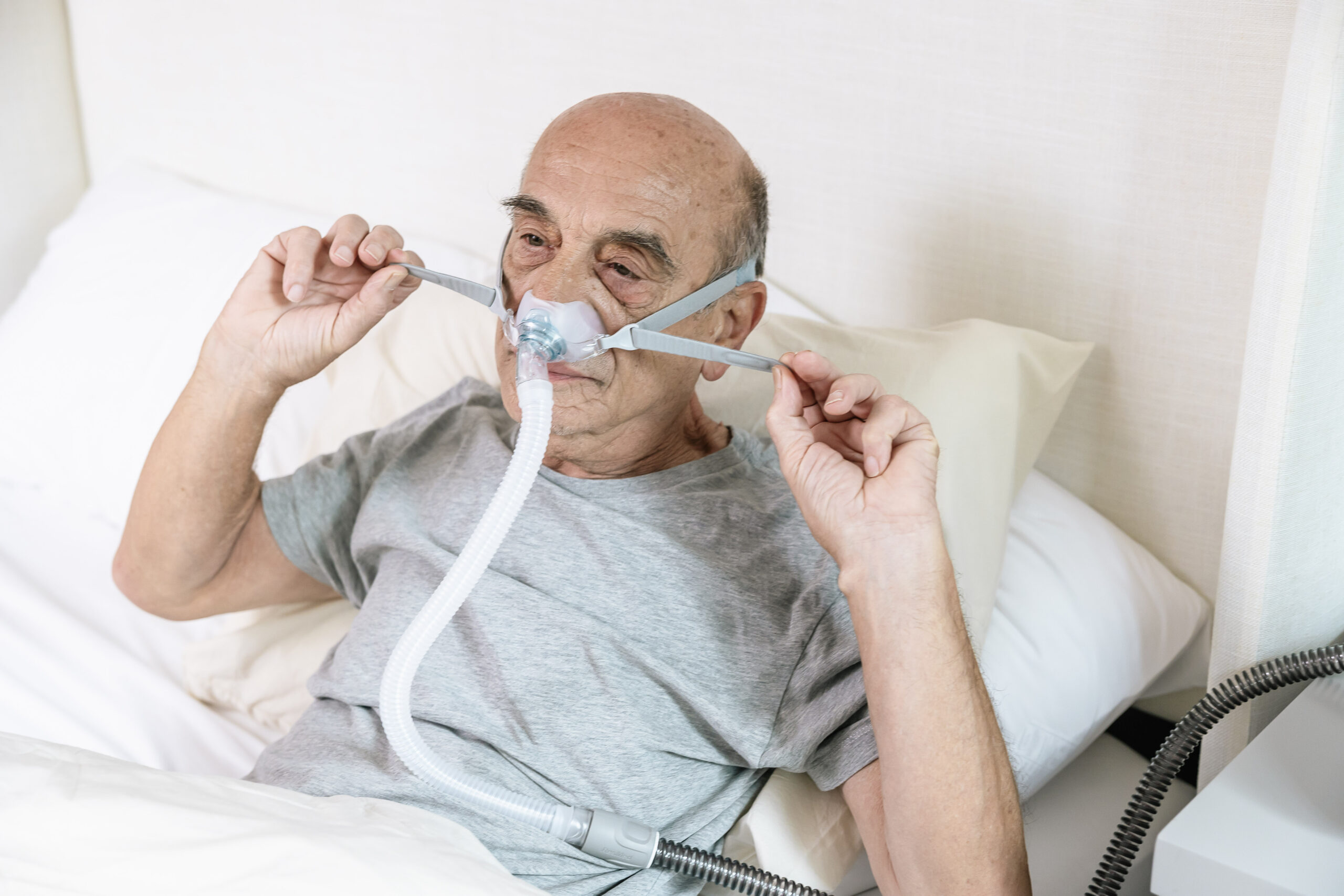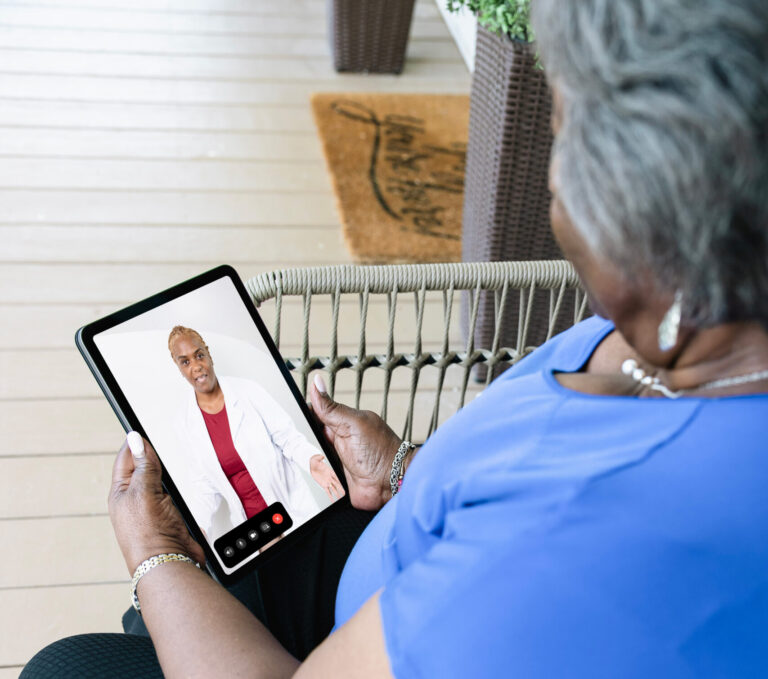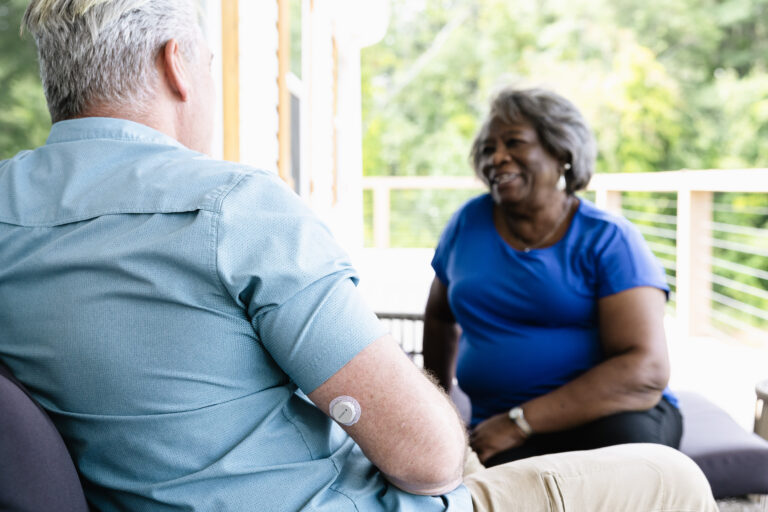Table of Contents
This content has been reviewed for accuracy by Mike Cantor, Chief Medical Advisor at Aeroflow Health.
Dive into our blog inspired by our webinar, “Health Plan Challenges and Strategies for Managing Sleep Apnea in the Post-COVID Era,” where we offer health plans valuable insights into the evolving landscape of sleep apnea diagnosis, treatment, and management. Gain actionable strategies and evidence-based recommendations to adapt your health plan’s approach to sleep apnea care, ensuring optimal outcomes for your members in the evolving healthcare paradigm. For a deeper understanding and comprehensive insights, don’t miss the chance to watch the webinar playback.
What are the greatest challenges health plans currently face in providing affordable positive airway pressure (PAP) therapy to their members with sleep apnea?
Dr. Rabinowitz: I think the biggest challenge right now is that there are a lot of people living with undiagnosed sleep apnea. We do not have great screening tools so understanding the data side and identifying individuals with sleep apnea can be challenging. Without screening tools we’re unable to urge members to get a proper diagnosis. Another challenge would be the current state of the supply chain and being able to provide members who are diagnosed with adequate resources.
Dr. Weiss: Because identification is such an ongoing issue, education is crucial. Health plans can help their members by providing information about common sleep apnea red flags such as waking up with a headache in the morning or gasping for air frequently through the night. Also, educating on the populations who are most at risk, such as African Americans would be beneficial. Incentivizing those members with such symptoms to follow up with a doctor could make a huge difference!
What does the end of the COVID state of emergency mean for members in commercial, Medicaid, and Medicare plans? Are there other factors leading to changes in coverage policies?
Dr. Weiss: Patients and insurance companies should work together during this transition to adjust to “post-COVID emergency” era. Insurance plans are no longer required to cover some services, but they may choose to cover to provide better care. Home tests for obstructive sleep apnea and telemedicine services fall within this category. Patients with commercial insurance plans may have a limited number of at home tests available. Those with Medicaid and Medicare still have access to home and tele services, depending on the state. Most states kept telehealth coverage available after the COVID state of emergency.
Are there challenges with getting access to or using PAP devices due to supply chain issues? What about the use of devices that do not record usage data or cannot upload it remotely? What is the current impact of the Phillips PAP recall?
Dr. Rabinowitz: Yes, there are still ongoing issues with members accessing PAP devices. There are 2 significant happenings to note that have only heightened this issue. The Phillips PAP Recall took many units off the market and then created an additional problem for people needing replacement devices. Additionally, the chip shortage was especially acute for medical device manufacturers as they did not have as much clout in the global marketplace. As it relates to the data transmission issues that surfaced with thePhillips recall, compliance was a concern for the equipment that didn’t have built in telemetry. Vendors and infrastructure dealing with this issue made reporting particularly difficult for health plans.
Dr. Weiss: Even though 2021 was a couple years ago, the Phillips recall is still affecting patients. Patients are still experiencing delays in equipment; however, I am seeing that patients are mostly experiencing fear around the potential problems their equipment might have and not so much the concern of being able to access the equipment.
How does adherence impact access for patients and what can be done to manage this?
Dr. Rabinowitz: From a health plan perspective, we’re always looking for the value that PAP therapy provides a patient. We’ve made great strides to help remove the barriers for patients to be diagnosed and treated for sleep apnea but we would like to know our members are benefiting from that therapy. The telemetry data from the device directly impacts how we interact with members. Based on the data, we can better understand next steps that a member might require. For example, a patient might need respiratory therapy, another sleep study or additional coaching – we wouldn’t know these things without the data. With the additional information we can further assist.
Home testing for sleep apnea is becoming more and more popular. How do you make sure that patients that test at home get the right testing at the right place?
Dr. Weiss: An FDA- approved home test for sleep apnea (HTSA) can be ordered by a health care provider when there is a potential diagnosis of OSA. Patients and primary care providers should attend to warning symptoms of OSA to request the test when a patient complains of snoring, gasping for air during sleep, and excessive daytime sleepiness, morning headache, dry throat, dry mouth, irritability, and “brain fog”, such as difficulty concentrating. The right time is when these symptoms become noticeable to the patient, their bed partner, a relative or someone close to them. And the right place is an accredited medical provider using an FDA-approved HTSA.
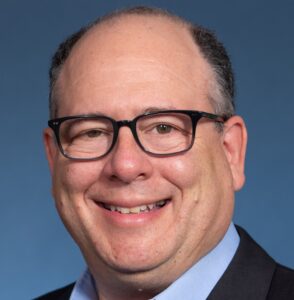
Michael Cantor, M.D.
Dr. Mike Cantor is a geriatrician and attorney who has extensive experience designing and implementing value-based care, quality improvement, and care management programs for healthcare providers and health plans. He works as a fractional (part-time) Chief Medical Advisor for Aeroflow Healthcare, Uber Health, and other technology-enabled health services companies, value-based care organizations and digital health companies. Previous roles include: CMO for Bright Health Plan, an innovative health
insurer; CMO for CareCentrix, a leading outsourced home health, durable medical equipment, and post- acute care benefits manager recently acquired by Walgreens; and CMO for the New England Quality Care Alliance (NEQCA), the physician network affiliated with Tufts Medical Center, where he implemented network-wide quality improvement and care management programs for 150,000 managed care lives. He trained in internal medicine at Beth Israel Hospital in Boston and did his geriatrics fellowship at Harvard Medical School. He has degrees in law and medicine from the University of Illinois.

Carleara Weiss, Ph.D., MS, RN
Dr. Weiss is the Scientific Advisor for Aeroflow Sleep. She has over fifteen years of experience as an Adult-Geriatric Nurse Specialist, with a Master in Science of Health Care and a Ph.D. in Nursing, focusing on Behavioral Sleep Medicine and Circadian Rhythms.Originally from Brazil, Dr. Weiss earned a Bachelor's in Nursing Science, Bachelor's in Education, and completed her medical-surgical & geriatric training and Master's degree at the Federal Fluminense University, Rio de Janeiro. After eight years as Assistant Professor and Clinician overseeing adults and older adults in hospitals, nursing homes, hospices, and private practice, Dr. Weiss moved to the United States where she earned a Ph.D. and Postdoctoral training in sleep and circadian rhythms at the State University of New at Buffalo.
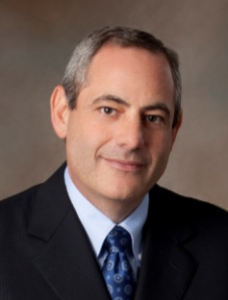
Phil Rabinowitz, M.D.,FACP
An Internist with a background in teaching and clinical internal medicine. Has been with Cigna since 2005. Currently a Senior Medical Director in the Clinical Performance and Quality Organization, based out of Pittsburgh, PA. Major responsibilities include: leading a team of Medical Directors, clinical oversight of National Vendors (managing HHC/DME/Sleep/PT/OT/Chiro/O&P/Cardiac Devices) as well as Strategic Partnerships; MD lead for the High Profile Escalation Team, and MD lead for out-of-network management and No Surprise Act implementation as well as many other customer experience and quality initiatives.


